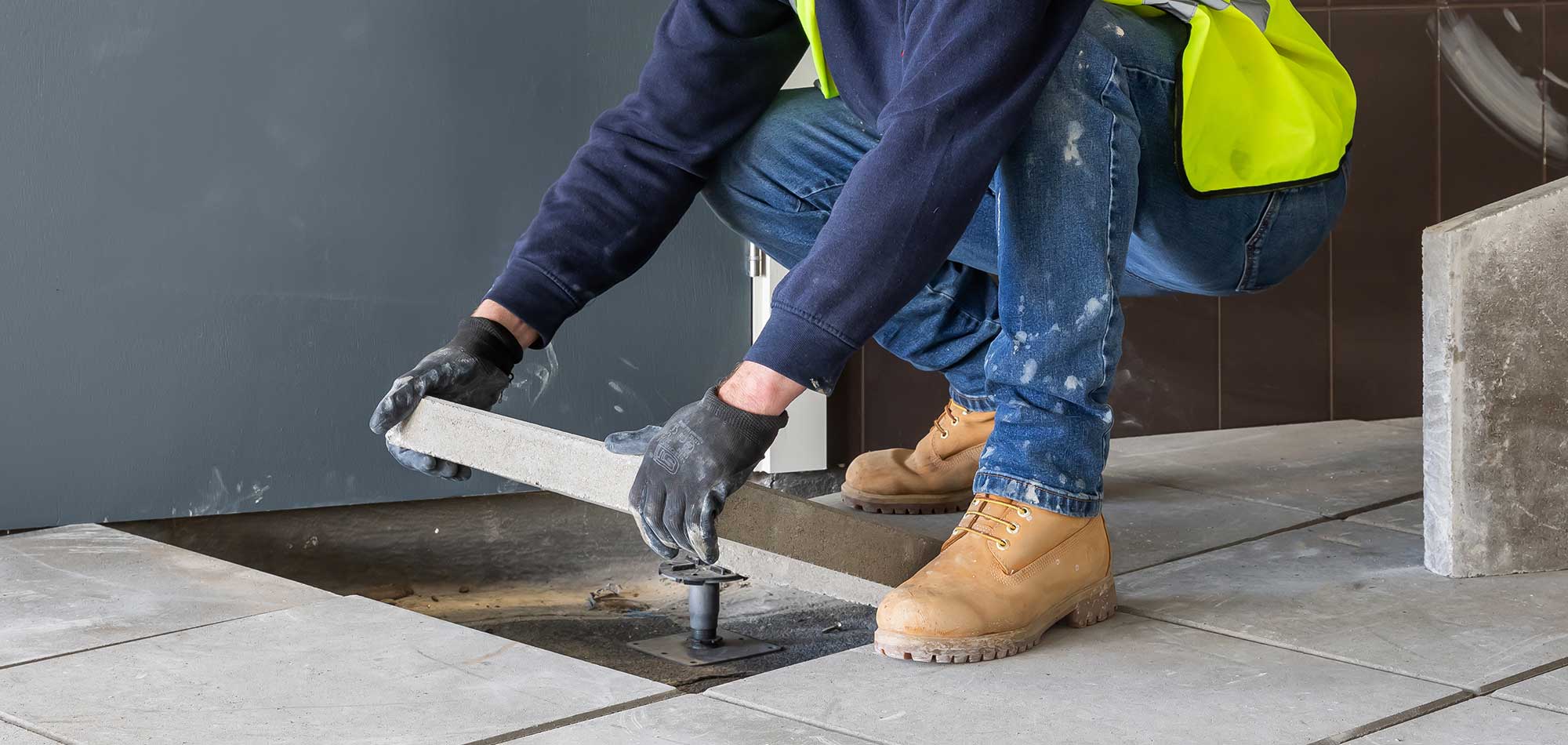Considering paving pedestals for a project but not sure if they are strong enough to withstand high loading and foot traffic? Read on to understand more about the third-party testing process.
Paving pedestals provide a simple and effective method of creating podiums, terraces and raised floors.
As with any imitable product, inferior copies are available. So before you specify or select a supplier, know what to look for in your paving pedestals by understanding more about the strength testing process.
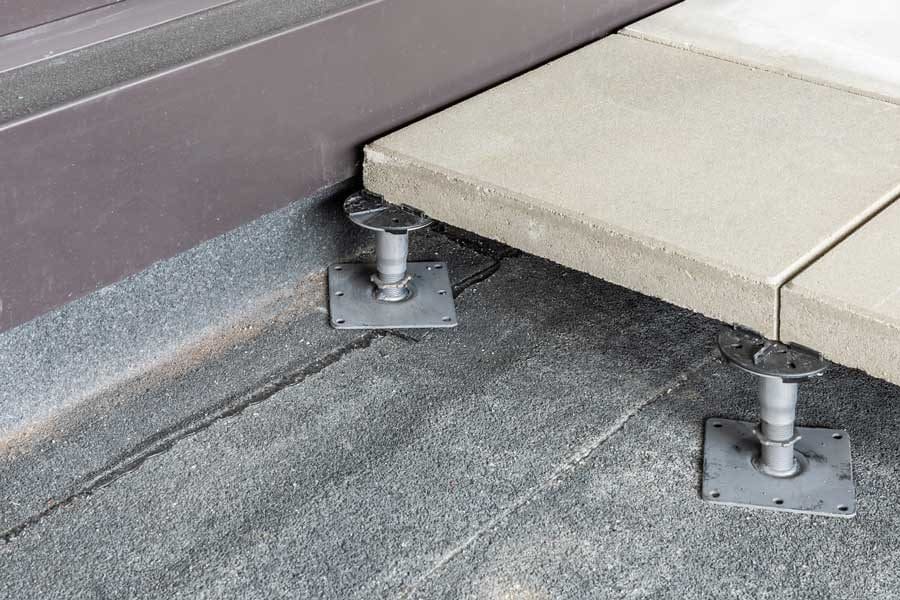
How are paving pedestals compression tested?
Before paving pedestals hit the market, load testing should be undertaken to ensure the supports are strong enough to withstand huge loads.
As well as high levels of foot traffic, pieces of furniture, planters and even small freestanding buildings are often installed on roof terraces. This often amounts to substantial downward force on the floor surface.
Here at Ryno, we undertake extensive in-house and third-party testing of all of our flooring support products prior to launch, to ensure they are up to withstanding such weight.
But how do we do this?
Third-party pedestal testing
Initially, we undertake rigorous internal testing with our own testing rigs as part of our standard product development process. When we are happy with the strength tolerated by the pedestals during these internal tests, we then move onto the external, or third-party testing process.
It is very possible that each and every size of pedestal should achieve a slightly different result, so they are tested separately.
Upon arriving at the testing facility, each size of support in the range being tested is labelled, before the compression testing process begins:
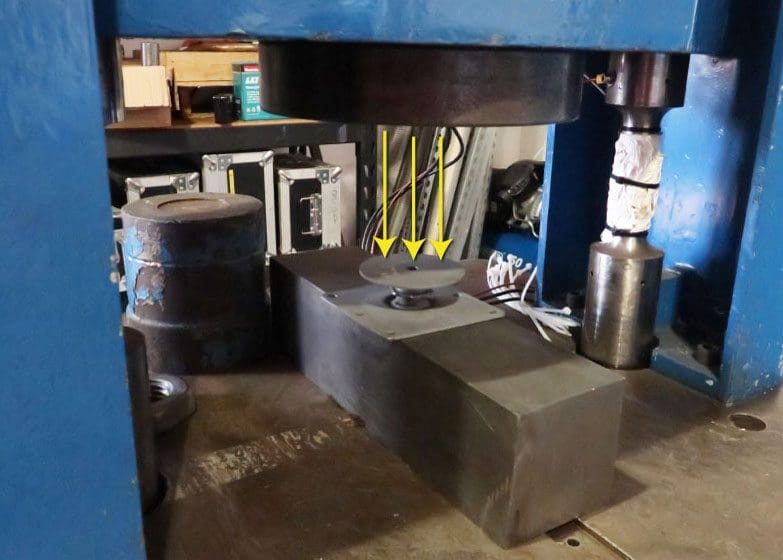
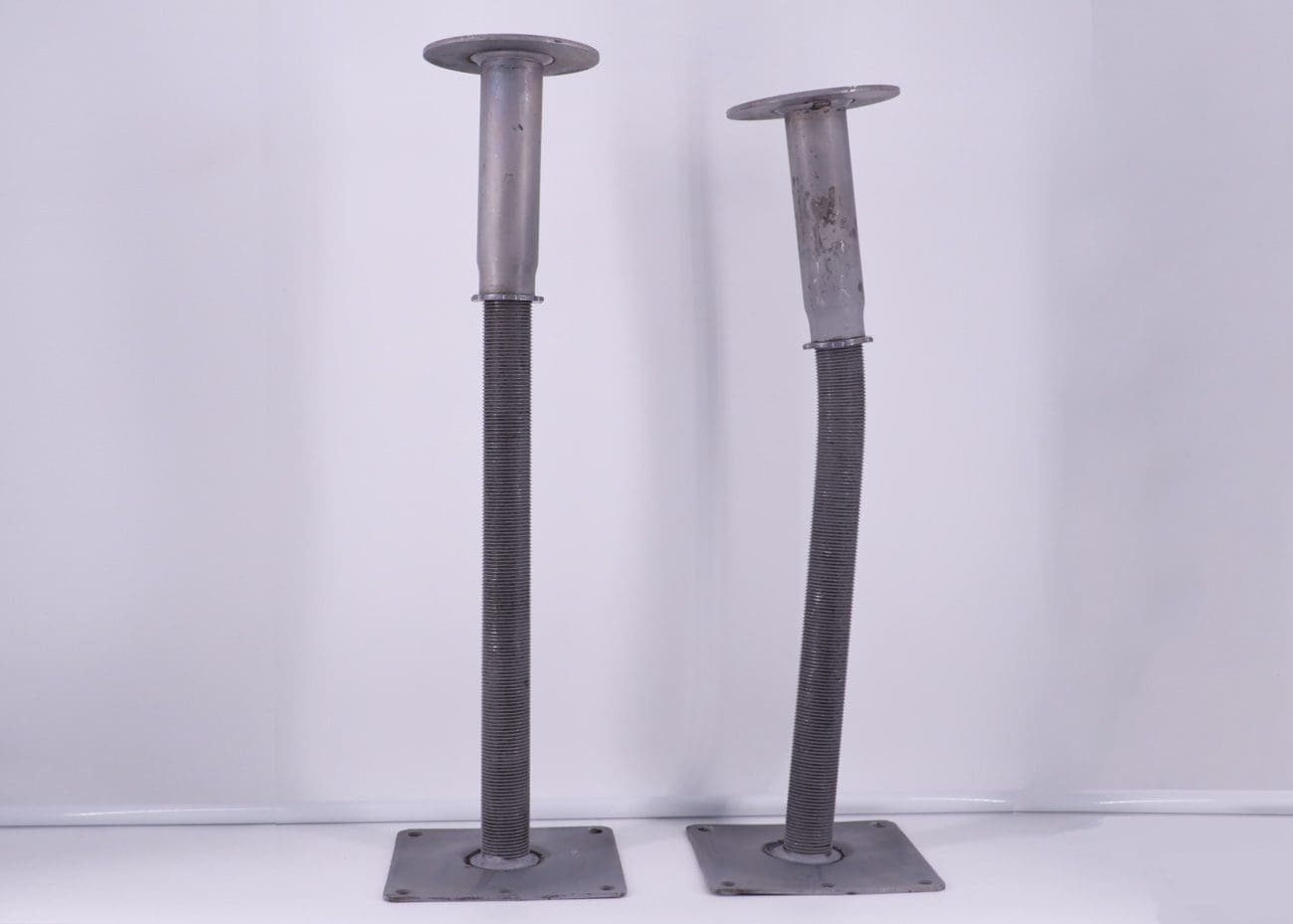
The testing process
1. First, the tension/compression machines are calibrated with force-measuring software to limit the possibility of inaccurate results
2. The first pedestal in the range is adjusted to its maximum possible height and placed between two plates on a compression load test rig (as shown below)
3. A load of 0.5 tonnes is applied to the pedestal and the deflection is recorded (deflection is the measure of force needed to compress a product/material)
4. This process is repeated, adding 0.5 tonnes each time
5. When the pedestal reaches its point of failure, the previous value is recorded
The above test process is repeated, with pedestals adjusted to their maximum possible height in each instance.
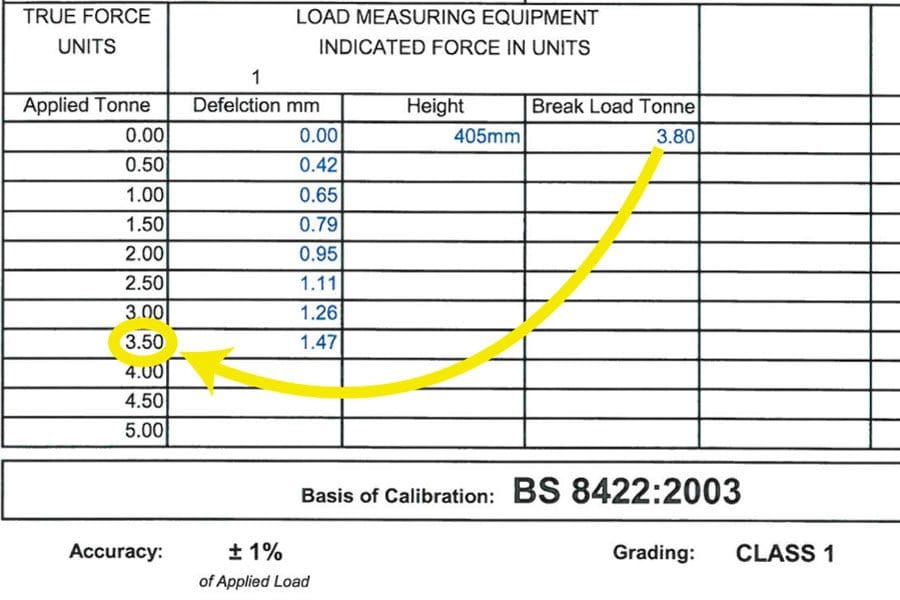
How is the compression value articulated?
At each 0.5 of applied tonnage, deflection is recorded and at the point of failure, the test is halted.
See the images for a better idea of what failure looks like for various sizes of Ryno RP-FR non-combustible pedestals. The breaking load of the RP-FR-3 (70-115mm) is 4.8 tonnes and the RP-FR-7 (305-405mm) is 3.8 tonnes.
As the applied tonnage is expressed in 0.5’s of a tonne, this means that the concentrated loads of the products featured are 4.5 and 3.5 tonnes respectively.
How can I be sure I’ve chosen a quality manufacturer?
If in doubt, check the manufacturer’s compression testing certification. Ensure the load monitoring organisation is using a fully calibrated and certified testing rig and check their certification is up to date. Also, ask about warranties and guarantees for an additional level of assurance.
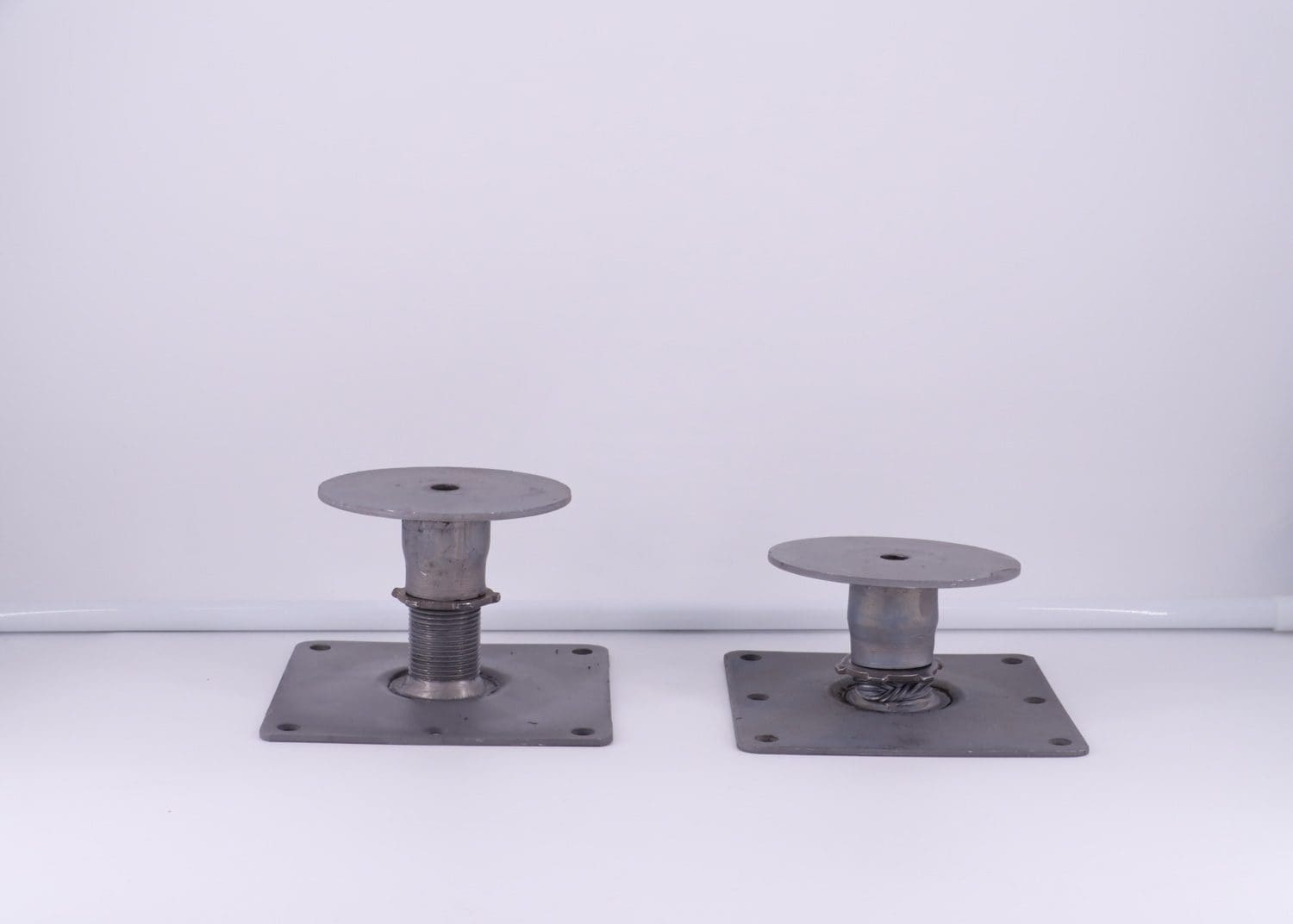
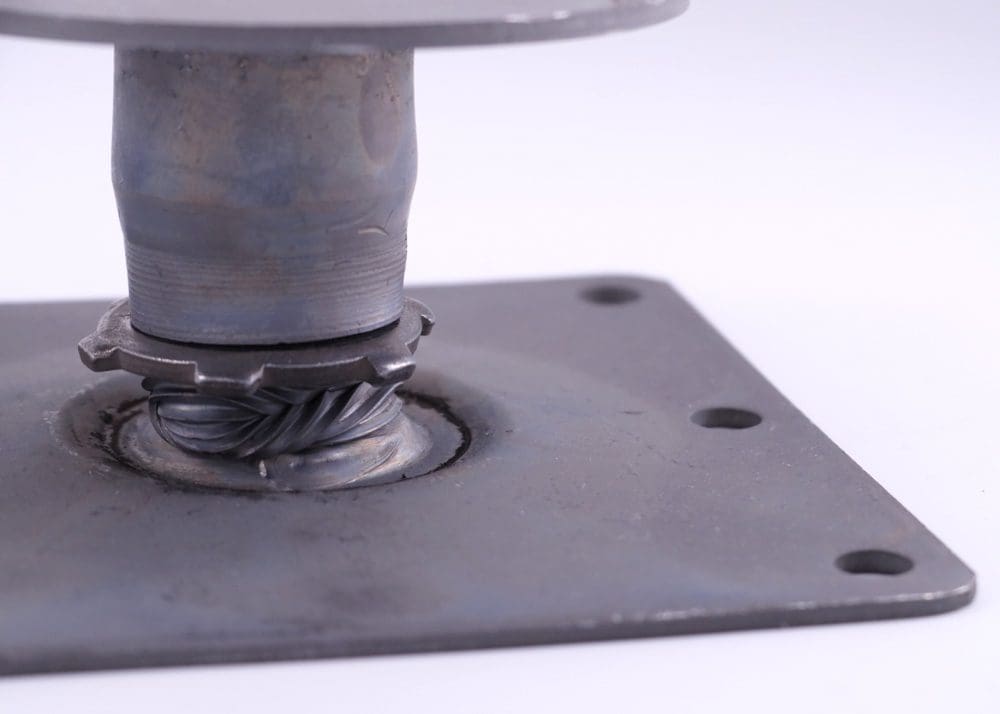
What about the paving tiles?
The above articulates the testing process for pedestal loading. However, the choice of paving tile has a massive impact on the overall load-bearing capacity of the paving system.
Natural stone, concrete, porcelain and other paving slab materials differ greatly in strength and will perform very differently when load is applied.
To understand which paving system is best for your specific aesthetic and design requirements, speak to our design team today.
